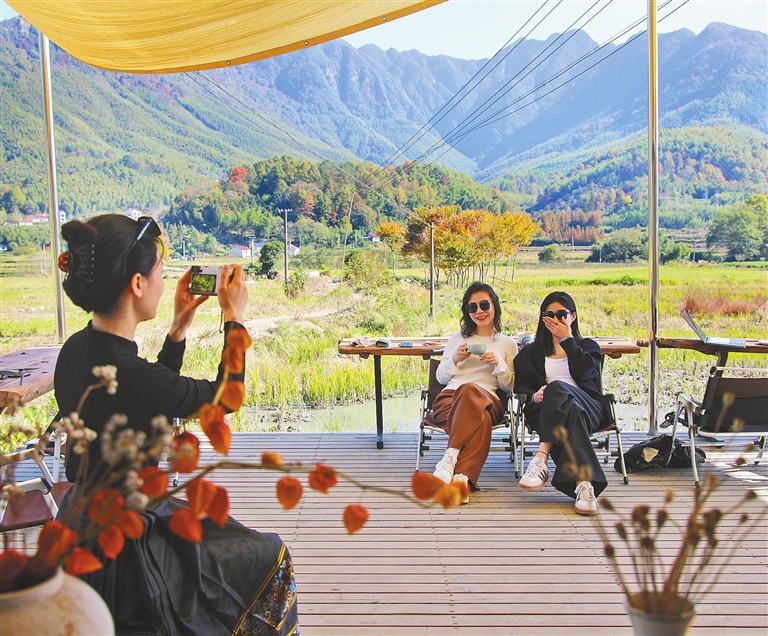
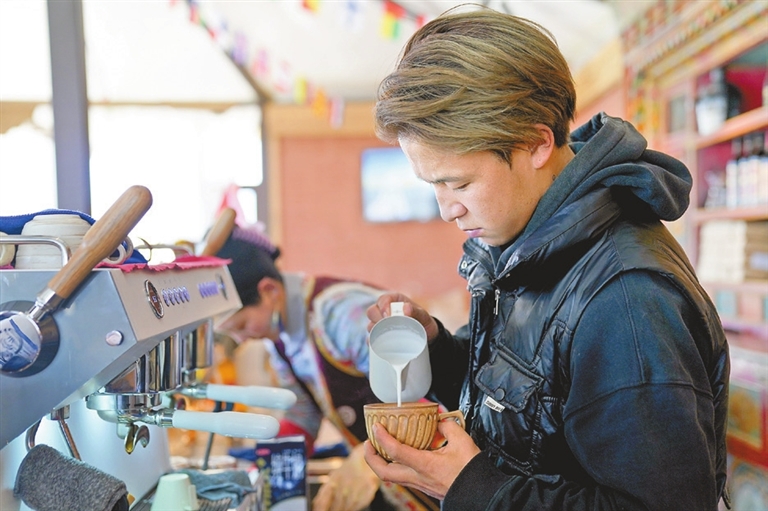
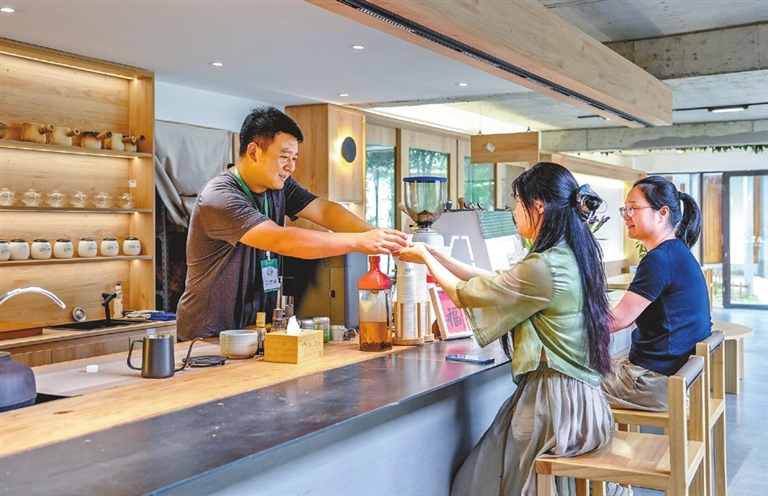
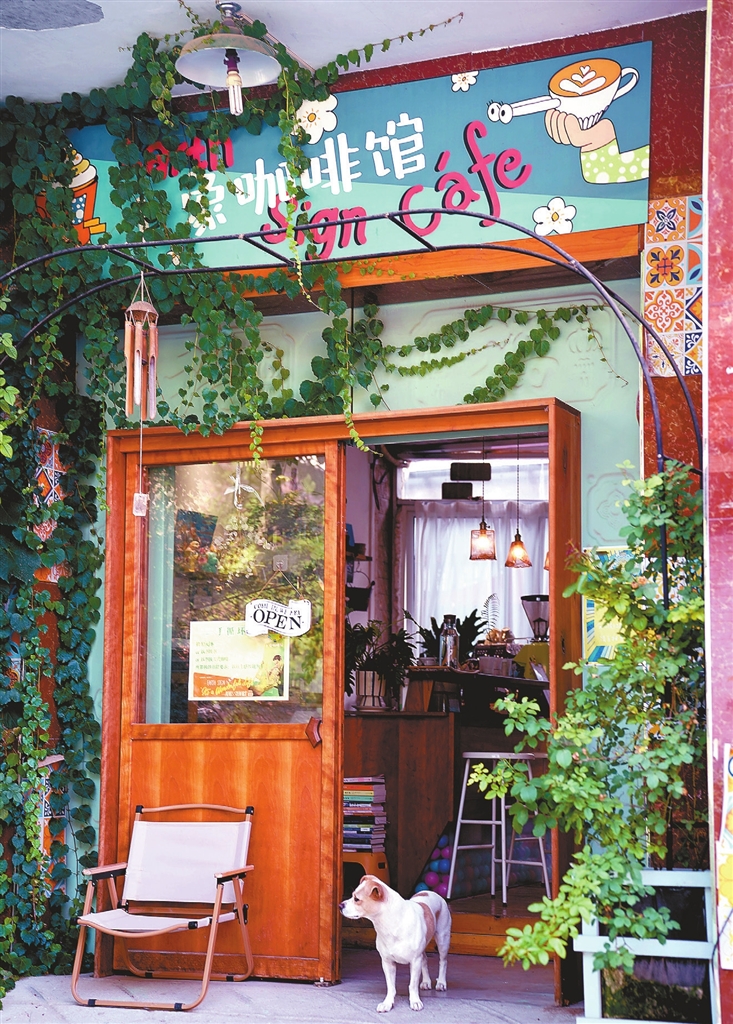
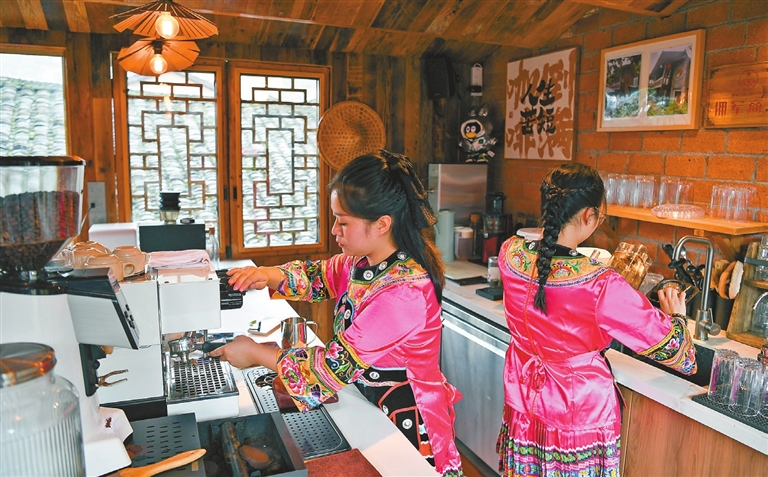
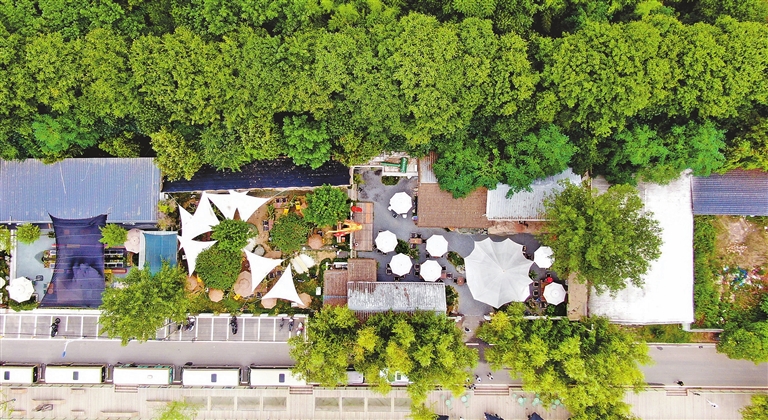
IN Daofu, a quaint county in southwestern China’s Sichuan Province, traditional Tibetan homes have been beautifully transformed into cafés, seamlessly blending international favorites like coffee with local treats such as butter tea and highland barley. “Sipping highland latte while listening to Tibetan folk songs and learning Thangka painting — what a perfect way to unwind!” exclaimed tourist Xu Xiaomei. In this county, which is filled with Tibetan heritage, cafés don’t just serve drinks — they offer local culture. “Even our coffee cups are custom-made from Daofu’s black pottery,” said Gao Yaojun, a local hotel manager, at the hotel’s café. Daofu now welcomes more than 1.5 million coffee-related tourist visits each year, reflecting the wider boom of café culture in China’s countryside. As of 2024, over 44,000 countryside coffee shops have sprung up nationwide. To stand out in an increasingly crowded space, many rural cafés are turning to the “coffee+” model, which pairs coffee with experiences like hiking, handicrafts, or farm visits. It’s not just about sipping a latte — it’s about discovering what makes each place special. The ‘coffee+’ model In southwestern China’s Guizhou Province, for example, a café perched on a 200-meter-high cliff has gone viral online. Adventurous visitors embark on a challenging trek through the forest and climb the cliffs to reach it, with the entire experience costing nearly 400 yuan (US$55.7) per person. Similar adrenaline-fueled cafés have also emerged in provinces like Zhejiang and Fujian. In southern China’s Yunnan Province, one of the country’s key habitats for wild Asian elephants, guests at a café in Pu’er can sip freshly brewed coffee while watching elephants roam and forage in the distant forests. Some cafés have chosen to tap into their agricultural roots. As China’s primary coffee-producing region, Yunnan offers visitors the chance to sip locally grown brews while exploring plantations and roasteries. In Wanning, China’s island province of Hainan, coffee farm cafés let visitors roast their own beans, blending agritourism with beverage culture. And the leftover coffee grounds are turned into eco-friendly crafts like sand paintings, murals, and scented accessories. This rural café boom is largely fueled by urbanites seeking weekend escapes into nature. In the first quarter of 2025, rural tourism in China welcomed 707 million visitors, an 8.9% year-on-year increase. Revenue reached 412 billion yuan, up 5.6%. The café boom is also energizing local economies. In Anji County, Zhejiang, a rural region with under 600,000 residents, more than 300 countryside cafés have opened in recent years. Cafés here often operate on a community co-op model: villagers and collectives invest land or resources, café managing teams handle operations, and profits are shared through rent, wages, and dividends. Deep Blue, one of Anji’s most popular cafés, returns nearly half of its coffee sales revenue to local shareholders. “You’ve got to admire how brilliantly resourceful these young people are,” said one villager. The rise of rural cafés is also reversing urban migration. Many young entrepreneurs are returning to their hometowns, drawn by the potential of rural development. Among them is Wang Han, 27, from Xinzhai Village in Yunnan. After working in Shenzhen and Kunming, Wang returned in 2020 to open a café and an online coffee business. “There’s something worth coming back for. Now visitors from across China come to tour our coffee fields and taste our brews,” he said. At Deep Blue, its 127 staff members are at an average age of 25 and have backgrounds ranging from medicine to shipbuilding, according to founder Cheng Shuoqin, who grew up in Anji and launched his business in 2022, along with six partners. Cheng believes concerns about market saturation are premature. More well-educated young talent is still on their way to the countryside, he said. “The more young people return, the brighter the future of the countryside.” Village cafés in the wild setting Far from the city’s polished espresso bars, village cafés offer customers a refreshing change of pace. In a village in Dongguan, for example, a café by a railway has become an urban-escape hotspot. Facing the tracks and shaded by ancient trees, it offers front-row seats to thundering trains. Owner Ye Zhongwen, who loved chasing trains as a kid, opened the Red Guan Coffee in 2024 in a two-story house that had sat vacant for years. Some of the café’s customers drive 40 minutes from Dongguan, others travel over two hours from Shenzhen, and even visitors from Hong Kong have made the trip. “At first, villagers were curious and skeptical,” Ye said. “Now many are regulars, and they’re glad the café is drawing more people who also buy their farm produce and other goods.” In a village in Quzhou City, Zhejiang Province, one such café sprang to life from a dilapidated sheep shed halfway up an abandoned mining hill. “It was the only usable structure around back in 2023,” said Yu Jiafu, founder of the Sheep Shed Café. “No roof, just broken walls and waist-high weeds. We gave it the English name ‘Young People Coffee,’ a playful pun on ‘Yang Peng’ or sheep shed in Chinese, hoping to draw more young people to the countryside.” Yu, a graduate of the China Academy of Art, saw beauty and potential in the wild setting. He and his team rebuilt the roof with thatch, kept the original stone structure, and used nearby mountain rocks to build the bar. “Our guests now range from city dwellers on weekend road trips to local youths who treat this place like their living room,” Yu said. At its busiest, the café welcomed more than 5,000 visitors in a single day. On regular weekends, guests come from nearby cities like Hangzhou and Shanghai. Even foreign travelers and internet influencers with millions of followers have stopped by. Since its opening, the café’s grounds have evolved to suit the clientele, now boasting a swimming pool, an open-air performance stage, a camping area, and a wood-fired bread oven. In April, Zhejiang hosted its first “Village Café Masters” event, where 33 coffee entrepreneurs showcased their brands and products. A rural coffee base was also unveiled that links academia, industry, and local communities in support of countryside coffee development. Alongside the event, local authorities introduced support programs including digital training, resource matchmaking, and e-commerce tools to help young entrepreneurs thrive in rural areas. For Yu, the goals are beyond personal. “I’m not here just to run a café,” he said. “I want to help the village grow, one cup at a time.”(Xinhua) | 
